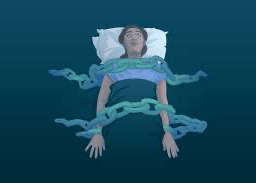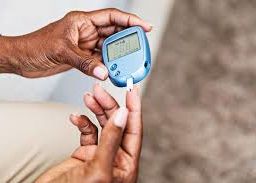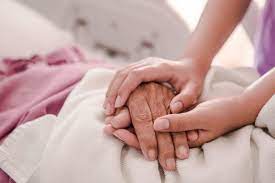
Essential Tips for Effective Bedridden Care
Bedridden Care – Essential Tips for Comfort and Well-Being
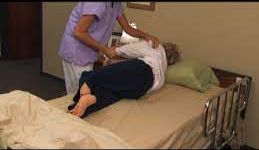
Taking care of someone who can’t get out of bed involves a mix of care and know-how. This article looks at how caregivers help with movement, why eating right is important, and how to keep the person feeling good overall. We’ll also talk about the tools and equipment that make things easier. Dive in with us to learn more about looking after someone who’s bedridden and how every little thing we do can make a big difference in their day.
Defining Bedridden:
Being bedridden refers to a person who is confined to their bed due to illness, injury, or physical limitations. This state often requires significant assistance with daily activities and necessitates careful attention to prevent complications.
Causes of Bedridden Conditions:
- Chronic Illness: Conditions such as advanced stages of cancer, multiple sclerosis, or chronic pain can lead to bedrest.
- Serious Injuries: Traumatic injuries, fractures, or surgeries may require extended periods of bed rest for healing.
- Neurological Disorders: Conditions like stroke or severe Parkinson’s disease can limit mobility.
- Progressive Conditions: Some conditions worsen over time, eventually leading to a bedridden state.
Physical and Emotional Impact:
-
- Loss of Independence: Bedridden individuals often depend on others for daily activities.
- Muscle Atrophy: Lack of movement can lead to muscle weakness and loss.
- Emotional Challenges: Feelings of isolation, boredom, and frustration are common.
Maintain Good Hygiene:

-
- Maintaining good hygiene is essential for skin health.
- Regularly assist with bed baths or sponge baths to keep the person clean.
- Change bed linens regularly to prevent skin issues.
- Ensure oral hygiene by helping with teeth brushing or using mouthwash.
- Regular changing of bed linens and gentle sponge baths help prevent infections.
Positioning and Turning:
-
- Regular changes in position are crucial to prevent pressure sores and maintain circulation.
- Use pillows and positioning aids to support comfort and safe positions as well as prevent muscle stiffness.
- Reposition the person every 2 hours to prevent pressure sores.
- Use pillows or positioning aids to support comfortable and .
-
- A balanced diet is crucial for overall health and healing.
- Ensure the bedridden person receives adequate fluids to prevent dehydration.
- Provide a balanced diet to support overall health.
Range-of-Motion Exercises:
-
- Perform gentle range-of-motion exercises to prevent muscle stiffness and joint contractures.
- Consult with healthcare professionals for specific exercises.
Assist with Medication:
-
- Administer medications as prescribed.
- Keep a record of medications and follow the prescribed schedule.
Emotional Support:
-
- Be attentive to emotional needs and provide comfort.
- Encourage participation in activities they enjoy, such as listening to music or engaging in hobbies.
- Engage in regular conversation and activities to prevent feelings of isolation.
Encourage Independence:
-
- Allow the person to participate in decisions about their care when possible.
- Support independence in tasks they can manage.
Provide Mental Stimulation:
-
- Offer reading materials, audiobooks, or other forms of entertainment.
- Engage in activities that stimulate the mind, such as puzzles or games.
Maintain a Comfortable Environment:
-
- Ensure the room is well-ventilated and at a comfortable temperature.
- Use comfortable bedding and clothing.
Assist with Elimination:
-
- Use bedpans or bedside commodes for toileting.
- Maintain cleanliness and dignity during these tasks.
Prevent Falls:
-
- If the person needs to sit up or transfer to a wheelchair, use proper lifting techniques.
- Install bedrails or other safety devices as needed.
Regularly Monitor Health:
-
- Keep track of vital signs, such as temperature, blood pressure, and heart rate.
- Watch for signs of complications, such as infection or changes in mental status.
Promote Comfortable Sleep:
-
- Ensure a comfortable mattress and pillows.
- Establish a regular sleep schedule and a calming bedtime routine.
Communicate with Healthcare Professionals:
-
- Regularly communicate with the person’s healthcare team to stay informed about their condition and adjust care plans accordingly.
Be Alert to Danger Signs:
-
- Be vigilant for signs of distress or changes in health.
- Seek urgent medical care if necessary.
Communication and Companionship:
-
- Regular communication helps combat feelings of isolation.
- Providing companionship, reading aloud, or playing music can uplift spirits.
Medical Equipment and Aids:
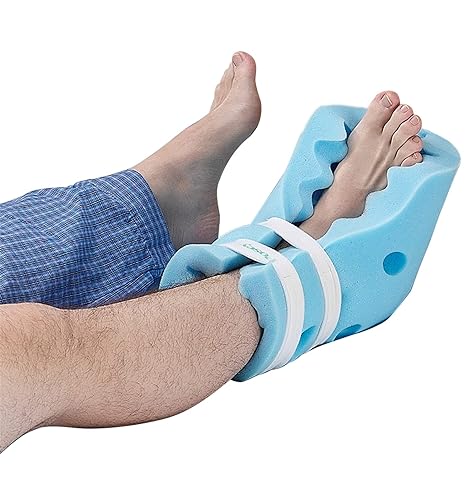
-
- When caring for someone who is bedridden, it’s essential to ensure their comfort, hygiene, and safety. Here’s how you can effectively utilize medical equipment and ensure easy access to necessities:
- Medical Equipment:
- Bedpans and Commodes: If the bedridden person cannot move easily, bedpans or commodes can assist with toileting needs. Ensure they are positioned correctly and comfortably.
- Lift Systems: For those who require assistance in moving or transferring, using lift systems can prevent injuries to both the caregiver and the individual. Always follow the manufacturer’s guidelines when using these systems.
- Accessibility to Necessities:
- Water: Keep a water bottle or a glass within their reach. Proper hydration is crucial for health and comfort.
- Tissues: Place a box of tissues or a soft cloth nearby for any immediate needs.
- Personal Items: Have a small basket or pouch with personal items like a comb, toothbrush, and lip balm within easy reach. This promotes a sense of independence and ensures they can attend to personal hygiene as much as possible.
- Medical Equipment:
- When caring for someone who is bedridden, it’s essential to ensure their comfort, hygiene, and safety. Here’s how you can effectively utilize medical equipment and ensure easy access to necessities:
Caregiver Well-being:
-
- Caring for a bedridden person can be physically and emotionally demanding.
- Caregivers need breaks too.
- If you’re caring for someone who needs constant attention, it’s crucial to take breaks for your own well-being and to prevent burnout. Here are some steps to arrange for respite care or get assistance from other family members:
- Communicate: Talk openly with family members about the need for help. Discuss the specific care tasks and the time commitment involved.
- Schedule: Set a clear schedule for when you need assistance. This could be a few hours a day, a weekend, or even longer periods. Seek emotional support or counseling if caregiving becomes overwhelming.
- Consider hiring professional caregivers or using respite care services. These professionals are trained to provide temporary relief and can offer specialized care.
- Family Rotation: Create a rotation schedule among family members. This ensures that everyone gets a break and shares the responsibility.
- Training: If family members aren’t familiar with specific care tasks, provide them with training or instructions. This ensures that the person receiving care remains safe and comfortable.
- Discuss Finances: Determine how the costs of respite care or additional help will be covered. This could involve family contributions, insurance, or other financial arrangements.
- Emergency Plan: Have a plan in place for emergencies. Ensure that family members know whom to contact and what steps to take if unexpected situations arise.
- Stay Connected: Even when others are providing care, stay in touch and remain involved. Regular communication ensures continuity of care and addresses any concerns promptly.
Myths about bedridden individuals

Myths about bedridden individuals can contribute to misunderstandings and impact the quality of care and support they receive. Dispelling these myths is essential for fostering empathy and providing appropriate assistance. Here are some common myths:
- Myth: Bedridden People Are Lazy:
- Reality: Bedridden individuals are often dealing with serious health issues or physical limitations that prevent them from being mobile. Laziness is not a factor; rather, they require support and understanding.
- Myth: Bedridden People Are Always Unconscious:
- Reality: Being bedridden doesn’t mean a person is unconscious or unaware. Many individuals are fully conscious but lack the physical ability to get out of bed due to illness or injury.
- Myth: Bedridden People Can’t Participate in Activities:
- Reality: While mobility is restricted, bedridden individuals can still engage in various activities, such as reading, watching movies, or participating in hobbies. Mental stimulation is crucial for their well-being.
- Myth: Bedridden People Don’t Need Social Interaction:
- Reality: Social interaction is essential for mental and emotional well-being. Bedridden individuals benefit greatly from regular communication, companionship, and visits from friends and family.
- Myth: Bedridden People Can’t Contribute to Decision-Making:
- Reality: Bedridden individuals can actively participate in decisions about their care, treatment plans, and daily routines. Inclusion in decision-making empowers them and respects their autonomy.
- Myth: Bedridden People Don’t Require Proper Nutrition:
- Reality: Maintaining a balanced diet is crucial for the health of bedridden individuals. Nutrient-rich meals aid in recovery and prevent malnutrition.
- Myth: Bedridden People Are Always Depressed:
- Reality: While bedridden individuals may experience moments of sadness or frustration, assuming constant depression oversimplifies their emotional state. Emotional well-being varies among individuals, and support can positively impact their mood.
- Myth: Bedridden People Are Helpless:
- Reality: Though they may require assistance with certain tasks, bedridden individuals can actively participate in decisions about their care, express preferences, and contribute to conversations about their well-being.
- Myth: Bedridden People Don’t Need Regular Medical Check-ups:
- Reality: Regular medical check-ups are vital for monitoring the health of bedridden individuals, managing existing conditions, and addressing any emerging issues promptly.
- Myth: Bedridden People Are Always in Pain:
- Reality: They might experience pain, but it’s not constant for everyone. Proper care can help manage it.
When to Seek Urgent Medical Care:

While providing care for a bedridden person, it’s crucial to be vigilant for danger signs that may indicate worsening health or complications
- Changes in Vital Signs: This means if the heart rate, blood pressure, or breathing rate suddenly goes up or down.
- Skin Changes: Look for consistent redness, swelling, or sores that develop from staying in one position for too long.
- Changes in Mental Status: If the person becomes confused, has sudden mood changes, or seems unusually agitated.
- Signs of Infection: Watch for signs like a fever, increased pain around wounds, or any changes in how wounds look.
- Difficulty Breathing: If the person is having a hard time breathing or shows signs of breathing problems, it’s urgent.
- Uncontrolled Pain: If the person’s pain doesn’t get better or even gets worse, even with medication.
- Sudden Changes in Consciousness: If the person suddenly seems out of it, confused, or unresponsive.
Seek urgent medical care!
Things to Avoid Doing: Here are some important things to remember when caring for someone who is bedridden:

- Ignoring Basic Hygiene: It’s crucial to keep up with regular cleaning routines. This helps avoid skin infections and keeps the person feeling fresh.
- Neglecting Nutrition: Make sure the person gets the right foods they need. A balanced diet can help them heal faster and avoid being malnourished.
- Forgetting Physical Activity: Even if they’re in bed, it’s essential to do some gentle exercises. This prevents their muscles from getting weak and helps keep their joints flexible.
- Neglecting Emotional Well-being: Being bedridden can be tough mentally. It’s important to talk with them, keep them entertained, and make sure they’re in a positive and comforting environment.
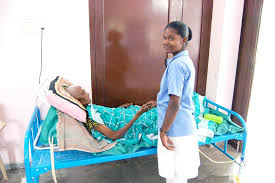
Taking care of someone who can’t get out of bed is both a big responsibility and a chance to show kindness and support. Caregivers play an important role by understanding what causes issues, watching for signs of trouble, and avoiding common mistakes. It’s crucial to respect the unique needs of bedridden individuals and create a caring environment. Everyone, including caregivers, family, and friends, plays a key part in ensuring the well-being and comfort of those who are bedridden. Each person is different, so their care should be personalized. Talking to healthcare professionals regularly and taking a personalized approach helps provide effective and caring support for bedridden individuals. It’s important to communicate openly with healthcare professionals and get prompt medical care when needed for the best outcomes for those spending a lot of time in bed.
Disclaimer: This post is intended solely for informational purposes and does not constitute medical advice. Always consult with a qualified healthcare professional for personalized guidance regarding your specific health situation.


